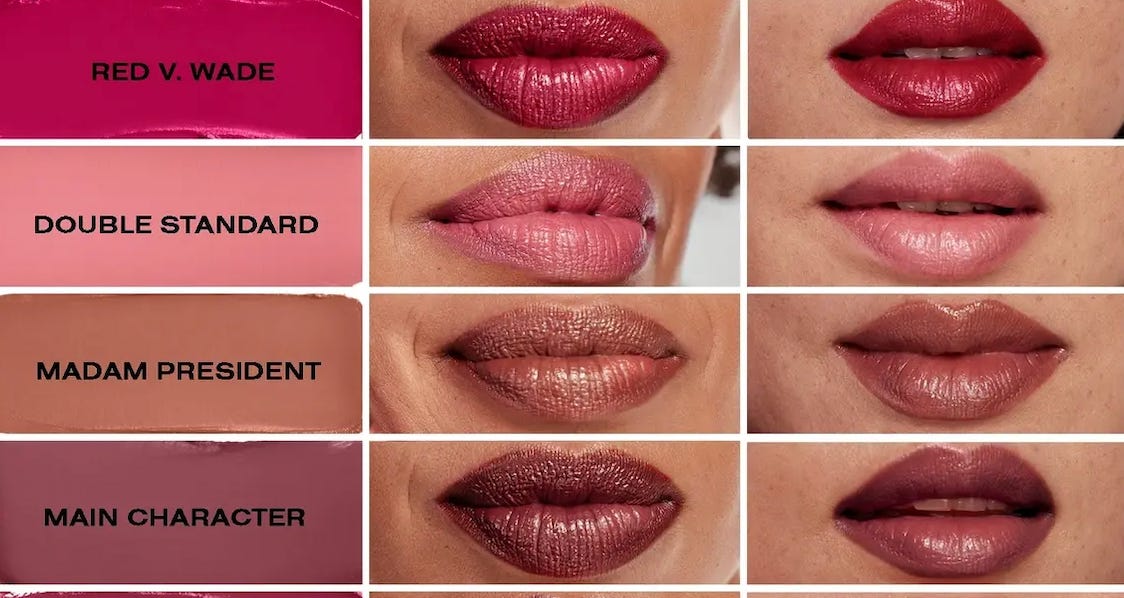Founder of No. 1 Beauty Retailer In Nation Interferes With Election Journalism
The Don't Buy List: Issue #83
Hello and welcome to another edition of THE DON’T BUY LIST!
Late last week, the Washington Post announced it would break with decades of tradition and would not endorse a candidate in the upcoming U.S. presidential election. Jeff Bezos, the Post’s owner, reportedly made the decision after the editorial board had already drafted an endorsement of Vice President Kamala Harris in order to appeal to Harris’s opponent, former President Donald Trump. “Bezos believes that former President Trump’s hostility toward the Washington Post, which produced critical coverage of Trump’s presidency, cost his companies billions in government contracts,” Judd Legum reports in Popular Information.
Those companies include Blue Origin, a private aerospace firm, and Amazon, the number one online beauty retailer in the country (and the corporation responsible for most of Bezos’s net worth of $211 billion).
Over 200,000 Washington Post readers have canceled their subscriptions since the news broke. There’s a debate to be had about whether that’s an effective form of protest, but still — it’s interesting that these principles have not carried over to canceled Amazon Prime subscriptions, or petitions to stop beauty brands and influencers from doing business on Amazon, or, at the very least, acknowledgment from the beauty media: The Executive Chairman of the most powerful corporation in the U.S. cosmetics market just interfered with election journalism.
Anyway! Onto the links.
IN THIS ISSUE: Chaos packaging! Breast cancer awareness products! Roe v. Wade lipstick! Presidential beauty! The Substance! Neck Botox! The ugly origins of “facial balancing”! Foot care is the new skincare! Pre-capitalist yearning! & more!
“Why Do We Care What Politicians Look Like?” asks Alexandra Pauly in a new piece for Highsnobiety. As I told Pauly in our interview, beauty is always political (although more to the point of maintaining the status quo as opposed to bringing about collective liberation) and aesthetic presentation can be a strategic part of crafting a political persona. I think that makes it worthy of our attention. Read Pauly’s (excellent) article here.
Speaking of beauty’s political potential, this is… not it! Sarah Creal Beauty launched a new lipstick collection called Speak for Yourself, the newsletter Starving For Beauty reports, which features shades like Invisible Labor (nude, of course), Pink Tax, and Red v. Wade. RED V. WADE!!!! (Sarah Creal Beauty is donating 15% of Red v. Wade’s net sales to Planned Parenthood, but still… RED V. WADE?!?!)
I feel like lipstick’s (false) alignment with liberation probably played a part in this. I’m sure you’ve heard the urban legend that suffragettes “wore red lipstick to symbolize their mission”, no? The myth is reliably repeated in the beauty media every election cycle, and perpetuated by the Elizabeth Arden brand, which claims its founder handed protestors red lipstick during a 1912 march for women’s rights in New York City. It isn’t true. According to research from Makeup Museum, the story seems to have originated in 1999 and isn’t backed up by any historical evidence.
I’m on the newest episode of the Non-toxic podcast with Daniel Waite Penny, talking all about male beauty standards. Listen here!
wrote about The Substance + her own experiences with beauty culture in her newsletter, , and interviewed me for the piece. (Podcast episode to come!) Here’s an excerpt:



